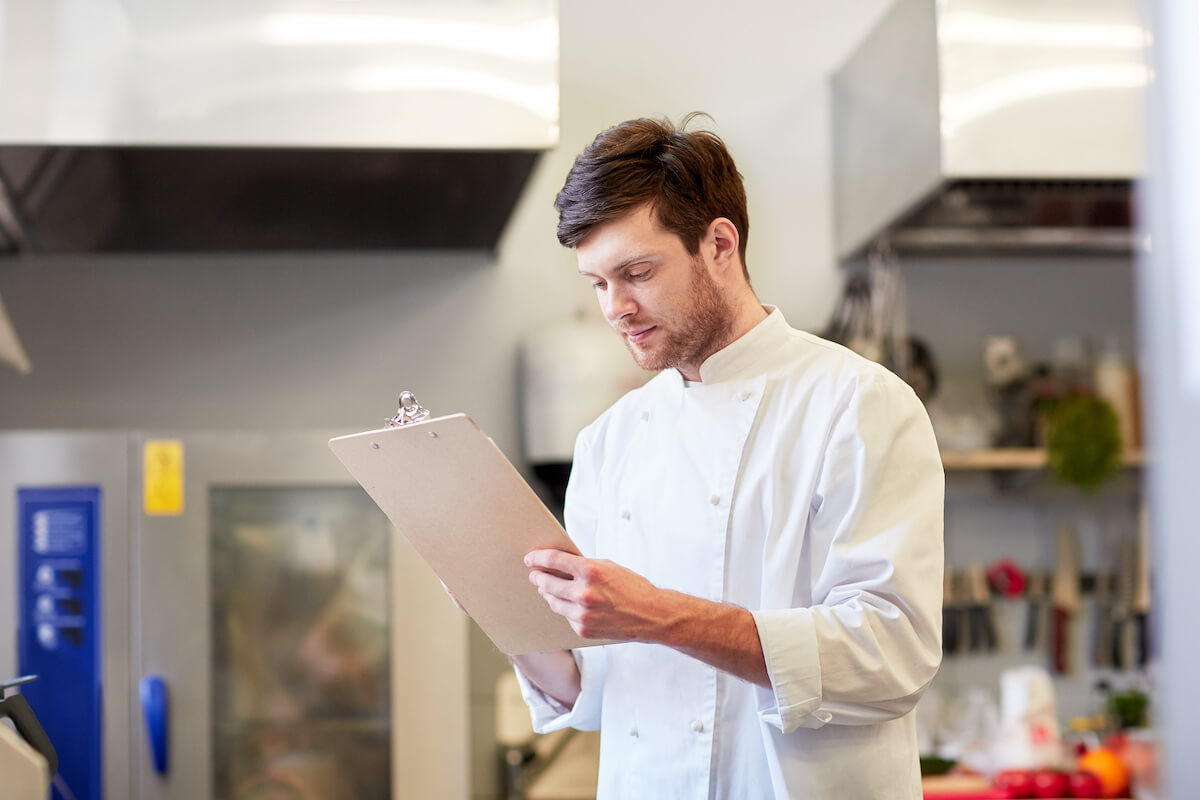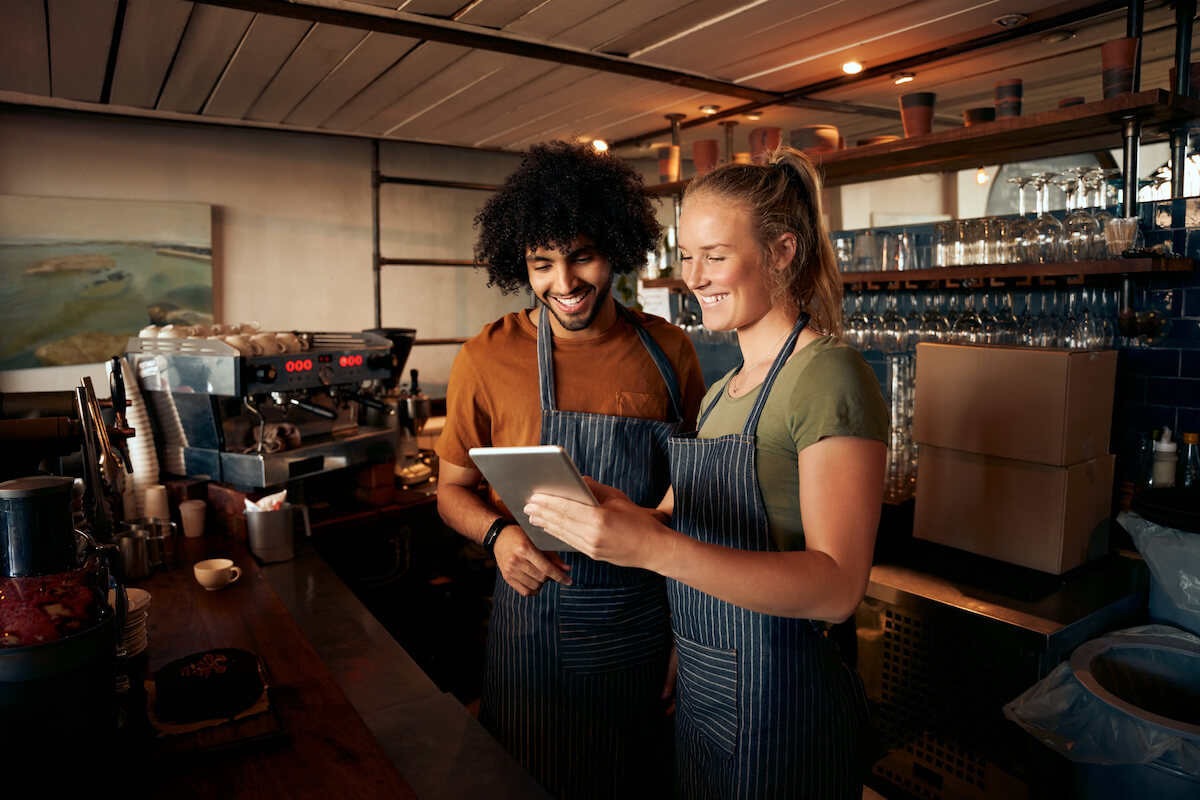The subtle art of comping a meal: When and when not to
Skip the article and turn takeaways into action by scheduling a call with our team.
Free meal: Two words put together that are surely music to anyone’s ears. Everyone loves a freebie, but not all freebies are made equal—nor are they truly free. As the saying goes, there’s no such thing as a free lunch.
For restaurant owners, comping a meal can be an effective and attractive option in many situations. But to comp a meal with confidence, restaurants should understand just how and when a comped dish is merited. After all, every meal comped affects the bottom line and costs money, time, and labor.
Complimentary services (shortened to comped or comping) have long been a part of our culture, not just in the hospitality and restaurant industry. Grandmothers don’t regularly charge their grandchildren for cookies because cookies represent far more than material gain. A sense of fairness and sharing is part of our DNA, but of course, it’s complicated.
So, how do restaurateurs know that they’re comping a meal fairly? When is the right time to comp, and when is the wrong time? How can comping benefit restaurants, and who should be able to make such decisions?
In this article, we’ll answer these questions. But first, let’s explore some basics.
What is comping a meal?

Simply put, comping a meal, drink, or any other product or service is when you provide that product or service for free. There are many different reasons why offering complimentary services makes good restaurant-business sense.
A town often associated with the term “comping” is Las Vegas. Many people who gamble large amounts get meals, drinks, rooms, and more comped by casinos there. From a business standpoint, the reason is pretty clear: The amount of money the casino spends on comping is far less than they stand to gain from the customer continuing to gamble at their establishment.
Comping customers can benefit restaurants, too, if it results in a similar win-win scenario. Done well, it can lead to a positive dining experience for customers, improve online reviews, and increase positive publicity on social media for restaurants.
A restaurant may comp service to make up for an error on the part of the restaurant or as a thoughtful gift to regular customers. Any more than that, and you get into a gray zone of murky policies and potential mistakes.
Knowing when to comp a meal or drink requires a bit of forethought and transparent communications with your front-of-house staff. So, let’s navigate that forethought.
When is the right time to comp?

There are many situations when it’s right to comp. As mentioned above, you can comp services to rectify mistakes or to bestow gifts. Here are some specifics.
When a meal is clearly wrong
When there’s been an obvious kitchen error—a burnt steak, undercooked chicken, hair or other foreign objects in the food, or otherwise unacceptable standards of preparation—the meal should be comped. There are two ways to do this:
- Offer to replace the offending item for free right there and as quickly as possible
- Offer to cancel any charges for the guest and/or offer them complimentary items (including future discounts and even entire meals) on their next visit
Immediately recognizing and responding to valid customer complaints in such cases keeps customers happy and makes them feel heard and cared for.
When there’s obvious server error
If a staff member has provided poor service, comping a meal can help salvage the dining experience and avoid negative online reviews. Hopefully, this won’t happen often, but when it does, it’s an appropriate time for a restaurant manager or owner to step in. Look at it as an opportunity to better train your staff to prevent bad service.
When there are major delays
Sometimes restaurants get busy. Everyone understands that. But if a customer has waited far too long for their food, comping the meal may help repair an otherwise bad customer experience. This can be especially true if your team forgot a customer’s dish altogether or served an individual their meal far later than those in their group.
When there’s a celebration, or you want to surprise a regular
Not all comping results from correcting screwups. Giving a regular customer an appetizer or free drink on the house with a wink and a nod can keep that customer coming back. Similarly, if someone is celebrating a special occasion like a birthday or anniversary, providing free dessert can go a long way towards building repeat customers.
When not to comp

Reserve comping for situations that truly call for it. It shouldn’t be standard practice or a regular fallback response since comping too often can hurt your bottom line. Here are some situations when it’s not a good idea to comp.
When there are small complaints
Addressing complaints is an integral part of the restaurant business. Of course, it’s impossible to please all customers all the time. So, it’s important to listen to and acknowledge complaints—but that doesn’t mean that you give customers a free meal for voicing their negative opinions.
This is where many new restaurateurs run into trouble. Discerning the difference between minor and major complaints comes down to experience in the industry. If your kitchen prepares a dish correctly, but the customer doesn’t enjoy it, that’s ok—it’s an opportunity to take feedback and improve where necessary. The same applies to slight criticisms about ambiance or service.
Most crucially, unscrupulous customers may figure out that small complaints get them free meals, so they take advantage of the situation. This is not common, but it does happen.
If you determine a customer’s complaint to be minor but valid, offering a coupon or similar token of acknowledgment can help satisfy the customer without damaging your reputation.
When a celebrity or critic comes to visit
Treat celebrities and critics like any other customer at a restaurant. Offering comped meals due to social standing is simply tacky and will lead to exploitation down the road. In the case of critics, offering to comp a meal can be viewed as a bribe.
Of course, there are situational caveats here. For example, if you’re a fan of a sports team and one of the players comes in, by all means, offer them a drink. But elevating one type of customer over another can irritate your regular customer base and thus is best avoided.
There’s been a significant trend of self-styled influencers asking for free stuff to support a business online. We highly recommend rejecting such offers if you don’t initiate the deal. Given the number of posts online decrying such “influencer” behavior, it’s best to snub them and enjoy their grief.
Who should be able to comp?

Who should be able to justify a comp is up to your restaurant’s policy. Certainly, restaurant owners and restaurant managers can do so, but some restaurants choose to empower servers to make those decisions.
In busy restaurants with a bar, for example, veteran staff or bar managers are likely candidates to decide that a comp is worth it. Comps are especially useful in bar scenarios, where a single drink given away for free will be remembered for a long time by customers. Bartenders should have more free rein than most in deciding who should be comped and when.
Similarly, when restaurants are hectic, delegation is necessary. While junior or new staff may not know the appropriate time to comp, experienced staff can and should be relied on to make such decisions.
Since our readers represent all sorts of restaurants, there’s no one-size-fits-all bit of advice. Who you empower to offer comped dishes and drinks is ultimately up to you.
Keep calm and comp on
A piece of one-size-fits-all advice we can give is this: Restaurants need to keep track of all comped services in their POS system. Imagine remembering your best regulars’ birthdays or favorite orders simply by looking at a screen. Neat, right?
And while we’re on the topic, that POS system should integrate with front-of-house software that makes restaurant life easier across the board.
That, right there, is just one of the advantages of Yelp Guest Manager. Guest Manager is a software heavyweight that works with POS systems, provides waitlist and reservation management, and overall FOH streamlining.
If you’re looking to spruce up your customer service and get your service running at full tilt, reach out to us for a free demo, and we’ll show you around. That way, you can comp a meal when you want to, not because you have to!